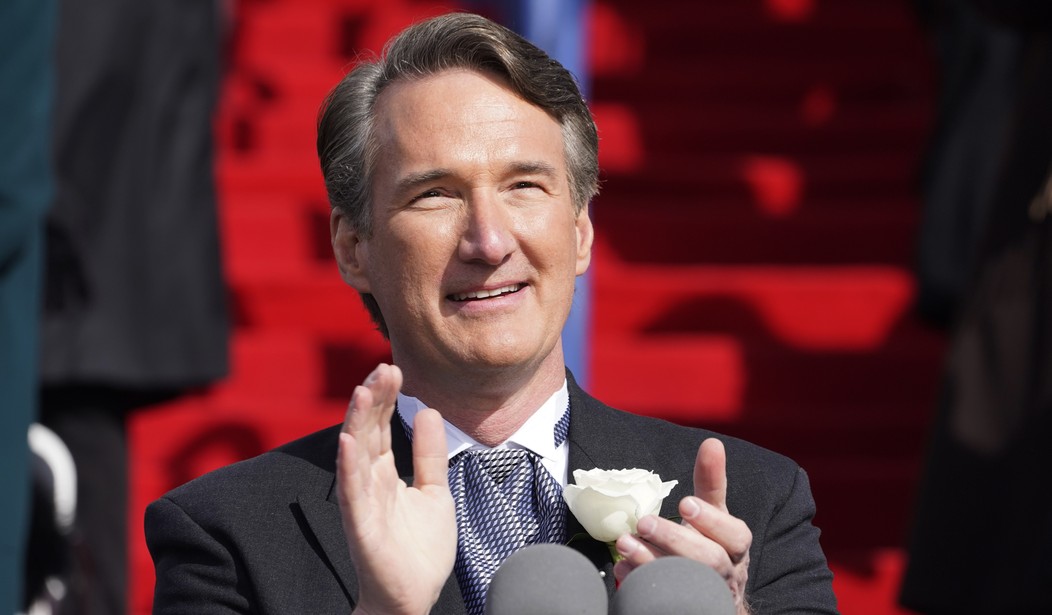The State Corporation Commission (SCC), which regulates public utilities, recently approved a new Dominion Energy-backed $9.8 billion offshore wind farm, the Coastal Virginia Offshore Wind Project (CVOW), 27 miles off the coast of Virginia Beach.
Unsurprisingly, Virginia ratepayers will pay more to “transition” away from fossil fuels as stipulated by the 2020 Virginia Clean Economy Act—Virginia’s “Green New Deal” signed into law by former Governor Ralph Northam (D-VA). Governor Glenn Youngkin (R-VA) has pledged to repeal the VCEA but can’t unless Republicans retake the State Senate next year.
The project’s supporters claim the 176 planned wind turbines will each produce “14.7 megawatts” to power upwards of 660,000 homes.
But there are major problems befalling the project.
Most notably, the CVOW contains a “revenue requirement of $78.702 million for the rate year of September 1, 2022, to August 31, 2023, to be recovered through a new rate adjustment clause (Rider OSW).” The Rider OSW, the SCC noted, will have a base monthly bill increase of $4.72 but a peak monthly bill increase of $14.22.
Recommended
Isn’t clean energy like wind supposed to help lower costs? It doesn’t here. Talk about unreliability.
This year alone, many Virginians will pay a solar tariff amounting to $20 in additional electricity costs. This is compounded by Dominion Energy’s request to charge its five million Virginia customers seven percent more across three years to reportedly combat inflation. Another estimate, however, points to the electric utility potentially raising fees by 12 to 20%.
Given this, the CVOW isn’t a cost-savings measure.
As electricity prices continue to soar, how would this expensive project be a remedy to include in the Commonwealth’s power grid? It isn’t.
Virginia already has two offshore wind turbines that cost $300 million. Has wind’s inclusion been reflected in the power grid? Has it led to our energy bills decreasing? Hardly.
Per the Energy Information Administration (EIA), Virginia’s was predominantly powered by natural gas (61%) followed by nuclear (29%), biomass (6%) and coal (4%). No mention or listing of solar and wind.
Obviously, natural gas and nuclear are still king in Virginia. Why discourage their use in favor of unreliable solar and wind?
The CVOW’s costs and limited electricity generation aren't the only red flags. The project’s potential negative environmental impact has yet to be seriously discussed and considered.
Here’s an inconvenient truth: offshore wind farms (OWFs) greatly interfere with fish migration patterns.
Oceanography, a magazine of the Oceanography Society, noted OWFs may act as artificial reefs but boast many ecological consequences like turning some OWFs into “no-go areas”— thereby making them “no-take zones.” The magazine also notes there could be adverse effects to “sensory environment related to sound, as well as electromagnetic fields and physical alterations of current and wind wakes, may have as yet unknown impacts on fisheries resources.”
The Energy Department even conceded wind turbines have adverse environmental impacts, writing, “As with all energy supply options, wind energy can have adverse environmental impacts, including the potential to reduce, fragment, or degrade habitat for wildlife, fish, and plants. Furthermore, spinning turbine blades can pose a threat to flying wildlife like birds and bats.”
Governor Youngkin broadly supports wind energy, but didn’t join an 11-state partnership with the Biden administration aimed at shoring up offshore wind development.
In June, five of Youngkin’s cabinet members wrote a letter to Bureau of Ocean Energy Management (BOEM) warning future leasing areas not “impact or restrict maritime commerce or commercial navigation within the federal channels into the Chesapeake Bay, Hampton Roads, The Port of Virginia's facilities, Chesapeake Bay anchorages, the Atlantic Ocean shipping lanes and its port approaches as well as traditional and projected high-density maritime traffic routes.”
Where are the Virginia environmental groups opposing the project on conservation grounds? Sadly, they’re all-in for it.
Lest Virginians forget: The CVOW is owned and operated by Dominion Energy—the same utility company whose CEO pumped money into a shadowy political action committee (PAC) that tried to depress turnout ahead of the 2021 Virginia gubernatorial election.
Governor Youngkin shouldn’t forget Dominion’s meddling in his race. But since the project is tied to the VCEA, much can’t be done—for now. Unless Virginians start voicing their concerns.
The SCC couldn’t reject the project, according to the Richmond Times-Dispatch, which reported, “The commission was constrained by the General Assembly from rejecting the project, which the legislature declared two years ago to be in the public interest. But the constitutionally independent regulatory body ordered Dominion to abide by a performance guarantee to protect consumers from additional costs if the farm of 176 wind turbines doesn’t perform as the company predicts.”
Nevertheless, these consumer protections aren’t enough to assuage concerns.
Virginia shouldn’t gamble on the CVOW, no matter how economically attractive it sounds. Let’s hope the SCC eventually pulls the plug on the project.

























